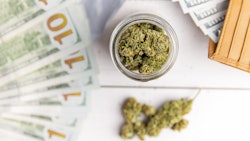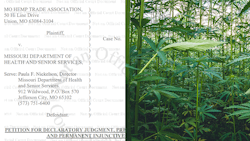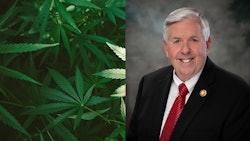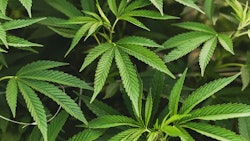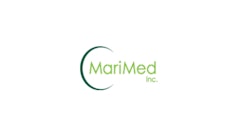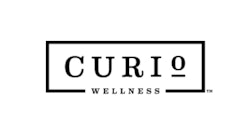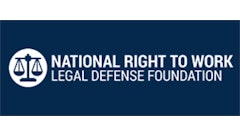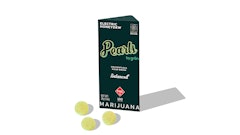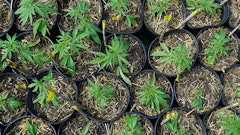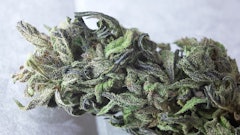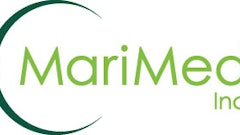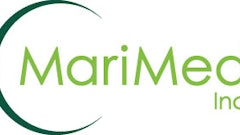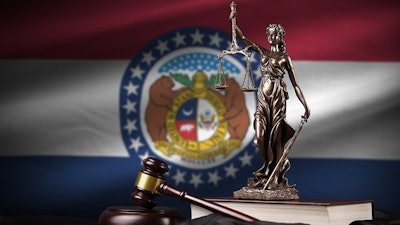
The Missouri Department of Health and Human Services (DHSS) has no intention to embargo additional intoxicating cannabinoid products as “adulterated” its deputy director said Sept. 17 in a letter to opposing counsel.
The DHSS began tagging intoxicating products containing hemp derivatives—such as delta-8 THC—that were sold outside the state’s licensed cannabis market as embargoed following Gov. Mike Parson’s Aug. 1 executive order to prohibit the sale of these products unless originating from an “approved source.”
Parson directed the DHSS to implement steps to embargo and condemn these products, which DHSS officials announced they would begin doing Sept. 1. Even food/edible products containing less than 0.3% THC, the federal threshold that legally defines hemp, would also be prohibited under the governor’s order, according to the DHSS.
In response to the executive order, DHSS officials listed more than a dozen compounds—including delta-8, -9, -10 and -11 THC, HHC, THCa and THC-O—from the cannabis sativa L. plant (both cannabis and hemp) that would be included in the governor’s ban.
However, the DHSS appears to be halting its embargo actions to avoid a potential temporary restraining order following an Aug. 29 lawsuit filed in Cole County Circuit Court by Stinson LLP attorneys on behalf of the Missouri Hemp Trade Association (MO Hemp Trade).
The lawsuit seeks an injunction to prevent the DHSS from moving forward on designating foods and beverages “adulterated” because they contain hemp derivatives and from embargoing such products.
RELATED: Missouri Hemp Trade Association Suing State Over Governor’s Intoxicating Product Ban
In the Sept. 17 letter to Stinson Partner Charles W. Hatfield, DHSS Deputy Director and General Counsel Richard Moore said the department does not plan to continue embargoing products in this fashion under the governor’s executive order.
“The department has no intention at this time to embargo additional psychoactive cannabis products as adulterated,” Moore wrote. Although Moore used the words psychoactive “cannabis” products, the DHSS previously issued a health advisory calling attention to “hemp-derived intoxicating cannabinoids” (more on this below).
All products that the department tagged as embargoed under Missouri’s Food, Drugs and Cosmetics Act since the governor’s executive order will now be referred to the attorney general’s office for evaluation of Missouri Merchandising Practices Act (MMPA) violations, Moore said.
The MMPA, in part, prohibits the “use or employment by any person of any deception, fraud, false pretense, false promise, misrepresentation, unfair practice or the concealment, suppression, or omission of any material fact in connection with the sale or advertisement of any merchandise in trade or commerce.”
To that end, Moore wrote, “The department will aim to identify products that may violate” the act.
In other words, the DHSS will now focus its future intoxicating cannabinoid enforcement efforts on the identification of “misbranded” products, as defined by state law—rather than “adulterated” products.
Moore said the DHSS agrees with opposing counsel from Stinson that Missouri law does not consider food containing industrial hemp or an industrial hemp commodity as adulterated. He also acknowledged that Missouri law defines adulterated and misbranded products differently.
“The department believes that channeling future enforcement authority via the Merchandising Practices Act is the best way to ensure that Missouri consumers know what they are purchasing and ingesting, and to keep harmful products out of the hands of children,” Moore wrote.
The DHSS will refer any misbranded products to the Missouri attorney general’s office for potential enforcement under the MMPA.
Any products containing intoxicating cannabinoids that the DHSS has already tagged as embargoed following the governor’s executive order will also be referred to the attorney general’s office. Within 30 days of a referral, the DHSS will release an embargoed product and remove all embargoed tags “so long as there is no court order prohibiting its sale or ordering its destruction,” Moore wrote.
To date, the DHSS has not embargoed any hemp or CBD products that are “collected by extraction and have not been changed into a new substance,” Moore wrote. Examples of products that the department has not targeted include hemp flower, hemp milk, hemp protein powders, hemp teas and CBD gummies, according to Moore.
Although the Sept. 17 letter stated that the department’s enforcement efforts are limited to “psychoactive cannabis products,” the DHSS issued a health advisory on April 30 regarding the risks associated with consuming “hemp-derived intoxicating cannabinoids.”
Moore pointed to this advisory in his letter to Hatfield.
“I trust that you understand that the consumption of these products may be dangerous, and that under no circumstances should they end up in the hands of Missouri’s children,” he wrote. “And in recent weeks, Governor Parson directed the department to take certain actions to combat these dangers via Executive Order 24-10.”








